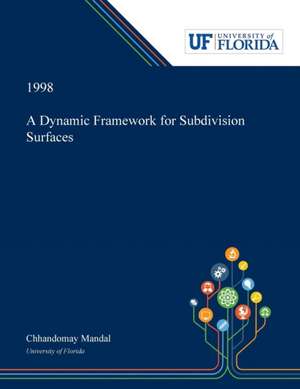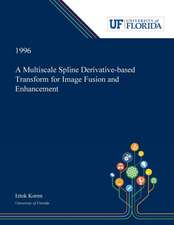A Dynamic Framework for Subdivision Surfaces
Autor Chhandomay Mandalen Limba Engleză Paperback – 31 mai 2019
| Toate formatele și edițiile | Preț | Express |
|---|---|---|
| Paperback (1) | 355.56 lei 6-8 săpt. | |
| Dissertation Discovery Company – 31 mai 2019 | 355.56 lei 6-8 săpt. | |
| Hardback (1) | 501.59 lei 6-8 săpt. | |
| Dissertation Discovery Company – 31 mai 2019 | 501.59 lei 6-8 săpt. |
Preț: 355.56 lei
Preț vechi: 444.45 lei
-20% Nou
Puncte Express: 533
Preț estimativ în valută:
68.04€ • 71.36$ • 56.64£
68.04€ • 71.36$ • 56.64£
Carte tipărită la comandă
Livrare economică 01-15 aprilie
Preluare comenzi: 021 569.72.76
Specificații
ISBN-13: 9780530002446
ISBN-10: 0530002442
Pagini: 184
Dimensiuni: 216 x 280 x 10 mm
Greutate: 0.48 kg
Editura: Dissertation Discovery Company
ISBN-10: 0530002442
Pagini: 184
Dimensiuni: 216 x 280 x 10 mm
Greutate: 0.48 kg
Editura: Dissertation Discovery Company









